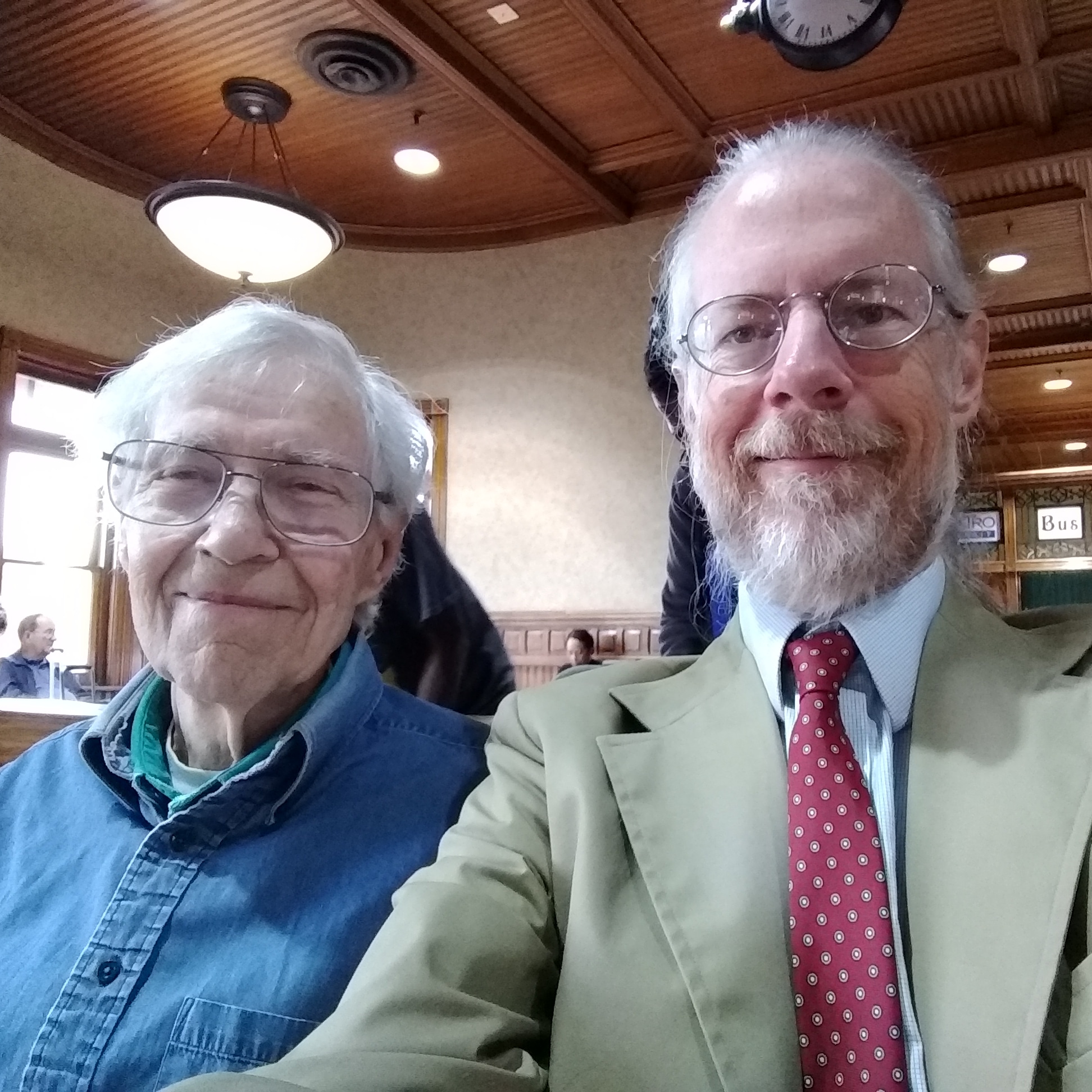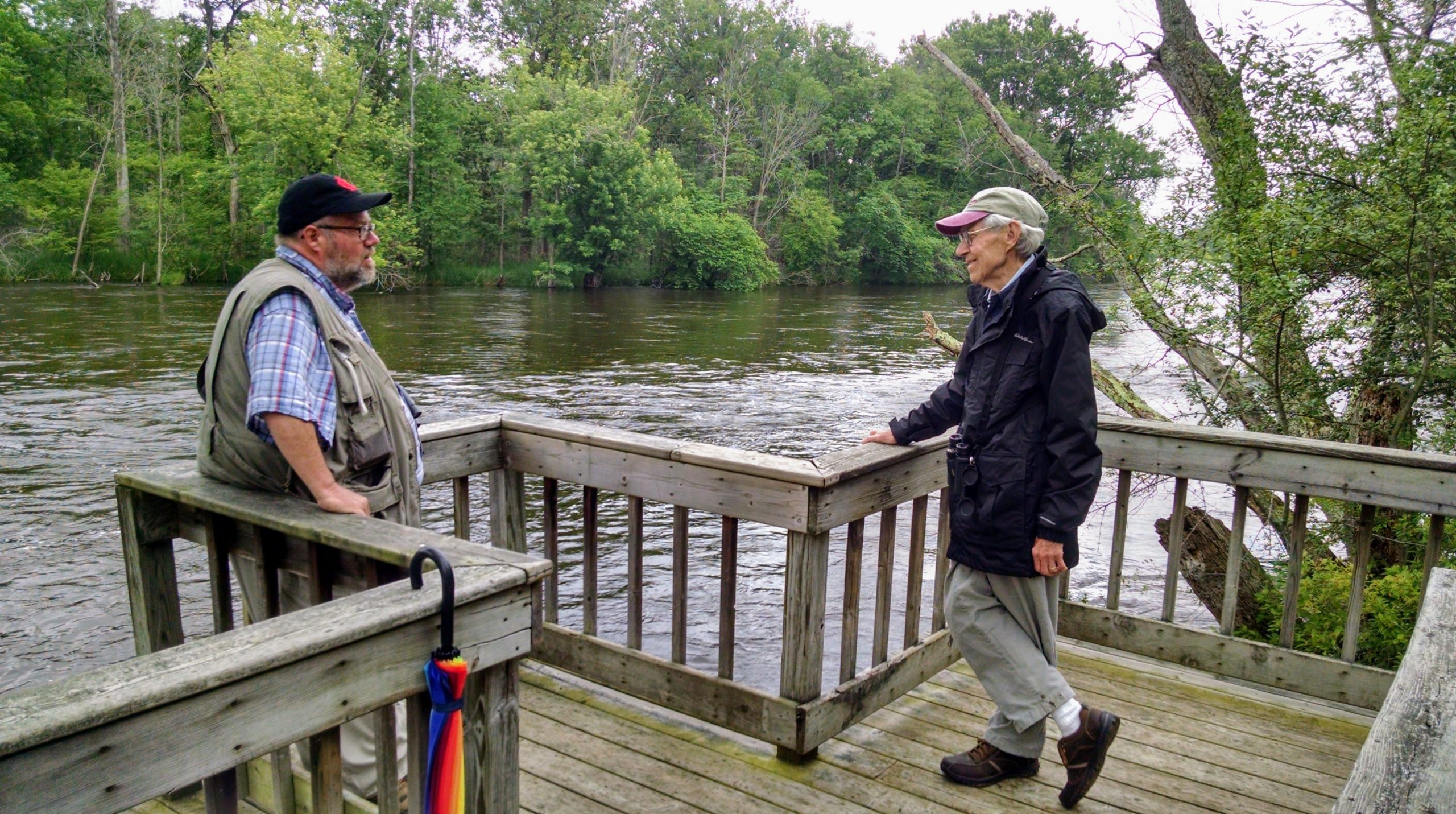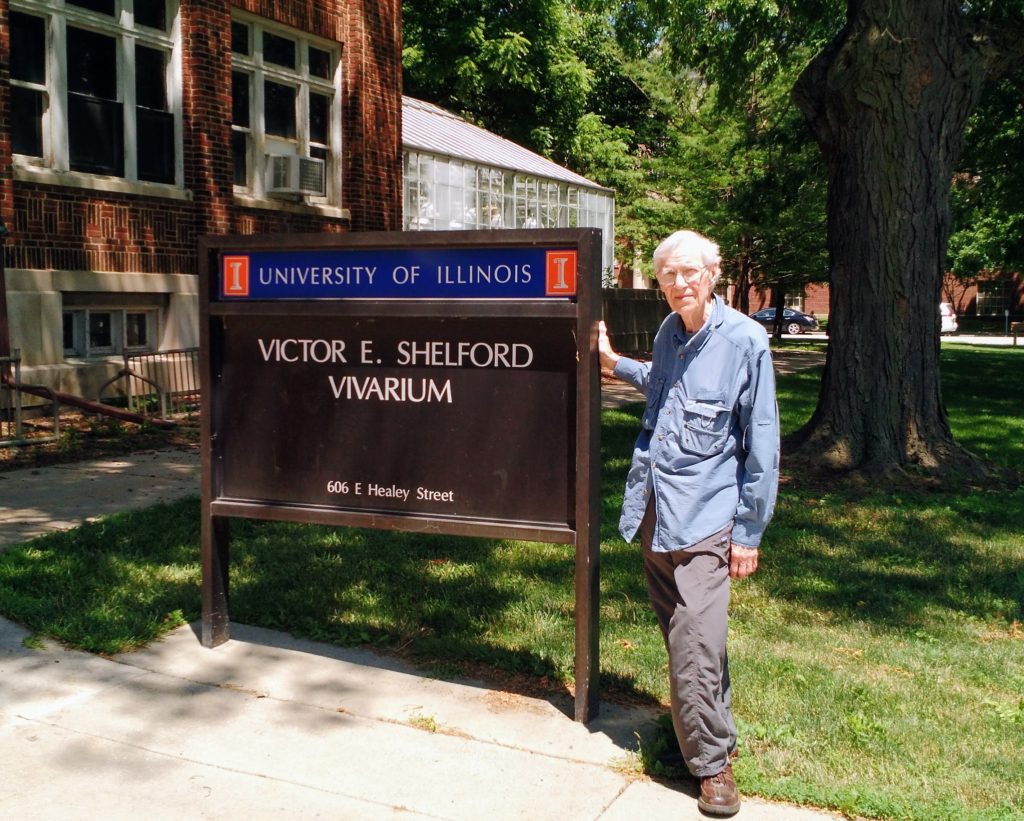Katy asked me to say a few words about my father at his funeral. I wrote the following and read it at the service.
My father was a scientist—an ornithologist and an ecologist.
He was many other things too, of course. Father. Teacher. Student. Writer. Conservationist. Artist. But even those things he often did in ways that drew on the fact that he was a scientist.
He told me a story once of when he was an undergraduate student.
He had taken a course in optics, and the optics textbook that the teacher had chosen was unusual, in that it did not solve some classic—very difficult—problem in optics that was worked as an example in every other optics textbook. Instead, it offered that as a problem for the students to solve, and his professor had assigned it as homework.
Finding the problem difficult to solve, my father went to the library and looked at another optics textbook which worked through the solution as part of the text. Grasping the essence of the solution, my father solved the homework problem.
The next day the professor asked if anyone had managed to solve the problem, and the only student to raise his hand was my father. The professor asked how he had solved it, and my father said, “It seemed obvious to me.”
As, of course, it was, after working through the solution in the textbook from the library.
I tell this story for several reasons. First of all, it was very much how my father was. Asked to solve a difficult problem of course he would use the resources available at the library. And, although he wasn’t quite so much this way after becoming a father, I gather he was something of a smart ass as a college student.
I think he always hoped that his students would approach the problems he provided in this manner, and was always a little disappointed how few did so.
My father had a pretty good sense of humor about most things. But he also had his quirks.
One time he mentioned aloud that he needed his license plate number for some form, and my brother immediately replied, “It’s 332 QRQ.”
“How is it that you can remember my license plate number?” my father asked.
“It’s easy,” my brother replied. “You have three hundred thirty-two quirks.”
My father didn’t think that was especially funny, which of course made it all the funnier to the rest of us.
Along with being a writer, my father was also an editor. He edited the Jack Pine Warbler for many years. When I was first writing science fiction stories he would read them. He didn’t offer much in the way of a critique, just unqualified support. And a careful line edit, which was very useful.
We spoke many times about our philosophies of writing. One time in particular I remember him saying that his goal in writing was, “To say exactly what I mean in limpid prose.”
It struck me as exactly the right goal for a writer. I have stuck with it, even though it is clear that having a more distinctive voice might make my stories my salable, because it suits me so well.
My father taught me to think like a scientist.
Several times when I was in high school I remember sitting with him in his study, trying to come up with a testable hypothesis for this or that phenomenon. I remember two in particular. Once we generated a few hypotheses for why we see reverse dimorphism in many raptors, but rarely in other birds. Another time we generated some hypotheses for why we sleep.
We never conducted any experiments to falsify any of these hypotheses, but the experience of generating falsifiable hypotheses—of thinking about things in terms of falsifiable hypotheses—was invaluable to me for the rest of my life.
Even our family vacations were expressions of his scientific understanding and interest. More than one vacation took place at a biological research station. One in particular was memorable for its black flies.
My father was many things but, above all, he was a scientist. This influenced and governed his thinking about everything. His work. His writing. His art. His land conservation. It was what he devoted his life to, and what he would want to be remembered for.



